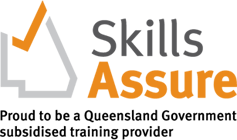Every student that enrolls in a course – no matter what course that may be – expects to receive excellent training that will increase their employability.
Although studying in an educational, professional setting implies you will acquire the necessary skills to succeed, not every training facility offers work placement.
At Sage Education, we pride ourselves on our ability to provide both exceptional practical training and educative modules.
We believe wholeheartedly that our students, who dedicate their efforts to the bustling healthcare industry, should be nothing less than comfortably prepared for the workplace.
Within our informative guide, we shall explore vocational placements and their advantages. We shall also uncover how we organize our students’ work experience so that you know the ins and outs of the courses offered at Sage Education!
What is a Vocational Placement?
A vocational placement enables students to apply their practical knowledge in a real-life workplace setting.
A student will undertake a vocational placement to gain essential professional skills and exposure. Although most students will complete their work placement and then return to their universities to finish their degree, a vocational placement isn’t exclusive to university students.
Any student enrolled in an education or training course will work alongside a host business as a required component or elective subject of their studies.
Who Can Benefit from a Vocational Placement?
Any student who studies at an educational or training institution can undertake a vocational placement.
Let’s look at Sage Education’s vocational placements; providing you demonstrate your unwavering dedication to the academic aspect of your studies, you will qualify and, thus, benefit from a vocational placement.
Will You Be Paid for a Vocational Placement?
The Fair Work Act of 2009 protects certain workplace rights and, specifically, the right to engage in industrial activities.
So, why is this important?
It’s important because, under the Fair Work Act, student placements are lawfully unpaid if they meet the following criteria:
If The Placement is Compulsory
Regardless of whether the vocational placement is arranged by your institution or yourself (given that it adheres to the requirements of your course), if it is mandatory, you will most likely be unpaid for your work.
It doesn’t matter whether the subject of your course that requires a vocational placement is compulsory or elective.
If There is No Entitlement to Pay For the Student’s Work
If the host organisation deems that they should provide payment for the work that a student completes, that no longer classifies as a student placement. In this case, the placement has turned into an employment relationship.
Additionally, student placements that are covered by industrial awards or agreements don’t qualify as work placements.
Note: an industrial award is a legal ruling that grants all employees in one industry – or under one employer – the same employment contract and wages.
If the Placement Must Be Approved
If the institution is authorised under an Australian, state, or territory law, the host business is not required to pay or provide entitlements to the student who undertakes a placement.
Courses offered at universities, TAFE colleges, and schools will also satisfy this requirement, in addition to all institutions that are authorised to offer training courses under state or territory legislation.
When the above criteria are met, host organisations aren’t required to pay vocational students.
Note: Even if your vocational placement doesn’t meet all of the criteria, you may still not be entitled to payment. What you need to do is determine whether or not you are in an employment relationship.
What is the Difference Between a Vocational Placement and an Internship?
There are a lot of misconceptions surrounding work experience, and it is often mistaken for internships, but the two are slightly different.
An internship is completed outside of – and is independent of – schoolwork or a university degree.
Work experience is completed as a part of your course and must be completed in order to graduate.
The Advantages of Vocational Placements
When you undertake a vocational placement, you will be able to reap the professional and personal advantages of practical experience.
We have compiled a list of some of the most prominent benefits of a vocational placement.
- You Gain Confidence
The confidence that accompanies your ability to demonstrate your new skills and knowledge is invaluable. By pairing your theoretical knowledge with a relevant understanding of context, you will have an edge over other students who couldn’t undertake a vocational placement.
You will be confident within the workforce, having obtained valuable insights into the inner operations and expectations of organizations and businesses within your desired industry.
- You Refine Your Knowledge, Skills, and Expectations
By having to apply your prowess to real-life work environments, you will get the opportunity to develop and refine your skills further.
Being exposed to personal, intellectual, and job-specific development, you will be able to specialise in a particular occupational aspect during your work experience.
You increase your chances of learning adaptability and improvisational skills, allowing you to reshape what you’ve learned to suit your given role best. Beyond this, you will also have a greater understanding of what it is like to work alongside potential colleagues!
- You Increase Your Employability
Work experience is incredibly appealing to employers, as it indicates that you already have the necessary competencies to flourish within that work environment.
The experience of working in a professional environment will also turn the nerve-wracking interview process into a meaningful conversation with an employer (whom you are very likely to impress with your experiences).
Additionally, you can also make strong connections with professionals in the industry and can offer useful advice and assistance to help you clarify your career goals!
How Does Sage Education Organize Vocational Placements?
With Sage Education, there are two options for work placements for our students. We can either arrange it for you, or we can use previous work hours from your current employment to fulfill your vocational requirements.
The courses that we organize vocational placement for:
– Our Certificate III in Individual Support (Ageing or Disability) course. For this course, you must complete 120 hours of vocational placement.
– Our Certificate III in Early Childhood Education and Care course. For this course, you must complete 160 hours of vocational placement.
The courses that we can use your previous work hours for:
– Our Certificate IV in Ageing Support course. For this course, you must complete around 120-150 hours of vocational placement.
– Our Certificate IV in Disability course. For this course, you must complete 120 hours of vocational placement.
– Our Diploma in Community Services course. For this course, you must complete 100 hours of vocational placement.
– Our Diploma of Early Childhood Education and Care course. For this course, you must complete 280 hours of vocational placement.
Note: If you don’t have previous work hours to use, don’t worry; we will still organize your vocational placement!
Why You Should Study with Sage Education
Sage Education is one of Australia’s top providers of nationally recognised VET courses in child care, aged care, disability, and community services sectors.
We have provided excellent education for the past twenty-five years! It is safe to say that we know how to guide our successful graduates towards rewarding careers in well-paid industries.
When you study with Sage Education, you will access an abundance of specialised competencies and practical training.
You will also reap the benefits of our connections to the top employers in the healthcare industry!
Not only will we give you the ability to empower, encourage, and enhance the lives of your individual clients, but you will also learn how to improve entire communities through your innovative, adaptive prowess.
Enrol with Sage Education
Now that you are an expert on vocational placements, it’s time to enroll in the perfect course and obtain unexcelled practical experience with Sage Education.
Are you looking to start a career in the aged care or early childhood education and care industry? If so, why not consider our Certificate III in Individual Support (Ageing or Disability) course or our Certificate III in Early Childhood Education and Care course?
However, we don’t just limit ourselves to providing unparalleled entry-level qualifications. We also strive to offer every student a chance to refine their professional prowess.
Take your studies to the next level with our esteemed Certificate IV and Diploma programs, and learn how to be not only a proficient employee but also an innovative leader. Revolutionize your community with our Diploma of Community Services course, or transform educative frameworks with our Diploma of Early Childhood Education and Care course!
All you need to do is get in touch!



